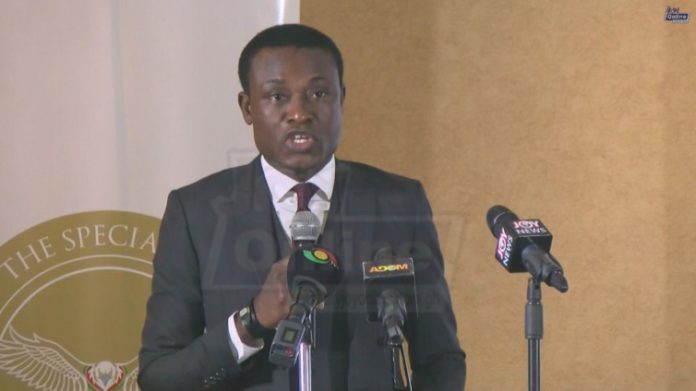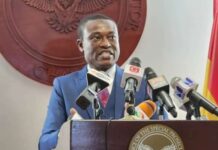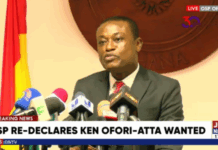
The Office of the Special Prosecutor (OSP) has charged four public servants and a civil servant for allegedly failing to comply and declare their sources of income.
Their failure to declare their sources of income is in contravention of the OSP Regulation (Operations), 2018 ( LI 2374).
A statement issued by the OSP on Friday named the four as Issah Seidu, who works with the National Insurance Commission; James Keck Osei, who works with the Office of the Vice-President as an administrator, as well as John Abban and Peter Archibold Hyde, both of whom are senior officers with the Customs Division of the Ghana Revenue Authority (GRA).
The accused are due to appear before the Accra High Court (Criminal Division) today.
What the law says
Regulation 20 (1) of LI 2374 gives the Special Prosecutor (SP) the task to ask a suspect to declare his or her income or property as prescribed by Form 11A of the First Schedule of the LI.
Per Regulation 20(2) of LI 2374, a suspect who receives such a query from the SP has 30 days supply the information.
According to Form 11A of the First Schedule of LI 2374, a suspect who refuses to comply with the directive from the SP within the 30 days stipulated period commits an offence.
Context
According to anti-graft agency, Transparency International (TI), lifestyle audits – also known as lifestyle checks or lifestyle monitoring – are an accountability tool that can be used to detect and prevent corruption.
Such audits typically conducted when the visible lifestyle or standard of living of an individual appears to exceed their known income level.
The detection of such discrepancies can raise red flags, warranting closer inspection.
In such instances, an assessment of the individual’s income, assets and investments can be undertaken to determine if such seemingly extravagant expenditures could have come from illicit gains.
If the audit shows a mismatch between a person’s known income and assets compared to their lifestyle and spending patterns, then there is an increased risk that the person is deriving alternative income from sources that constitute a conflict of interest or illegal activity, including embezzlement and bribery.
As verification often includes assessment of an official’s household, the approach is particularly helpful in detecting whether corrupt proceeds could have been concealed under the names of family members or associates.
Lifestyle audits are best used systematically in conjunction with other anti-corruption measures, including the criminalisation of illicit enrichment, establishing obligations for regular declarations of assets, incomes and interests, as well as unexplained wealth orders.
Expert view
The Director-General of the Internal Audit Agency (IAA), Dr Eric Oduro-Osae,who is a chartered accountant and governance expert, has been calling for a lifestyle audit of senior civil and public servants in the country.
He said such an exercise would not only check corrupt practices but also help weed out corruption in the public sector.
The last time Dr Oduro-Osae made the call was at a public forum organised by the Institute of Charted Accountants – Ghana (ICAG) in Accra on October 17,2022 as part of activities to mark the 20th anniversary of the Ga North District Society of the ICAG.
He believed such an exercise was essential in the country’s fight against corruption, adding that most of the time, it was public servants who guided politicians in their corrupt pursuits.
“We must conduct the audit, prosecute offenders, as well as publish their names in a national newspaper. If we start with people such as chief directors, those at the bottom will sit up,” he said.
Dr Oduro Osae further said the exercise, which should be part of a national agenda, must be commissioned by the President to audit the incomes of the officials against their monthly expenditure.





